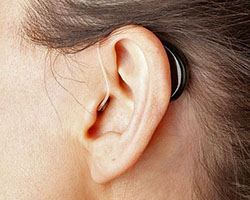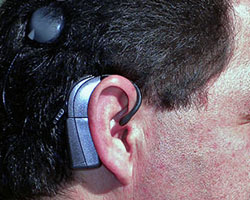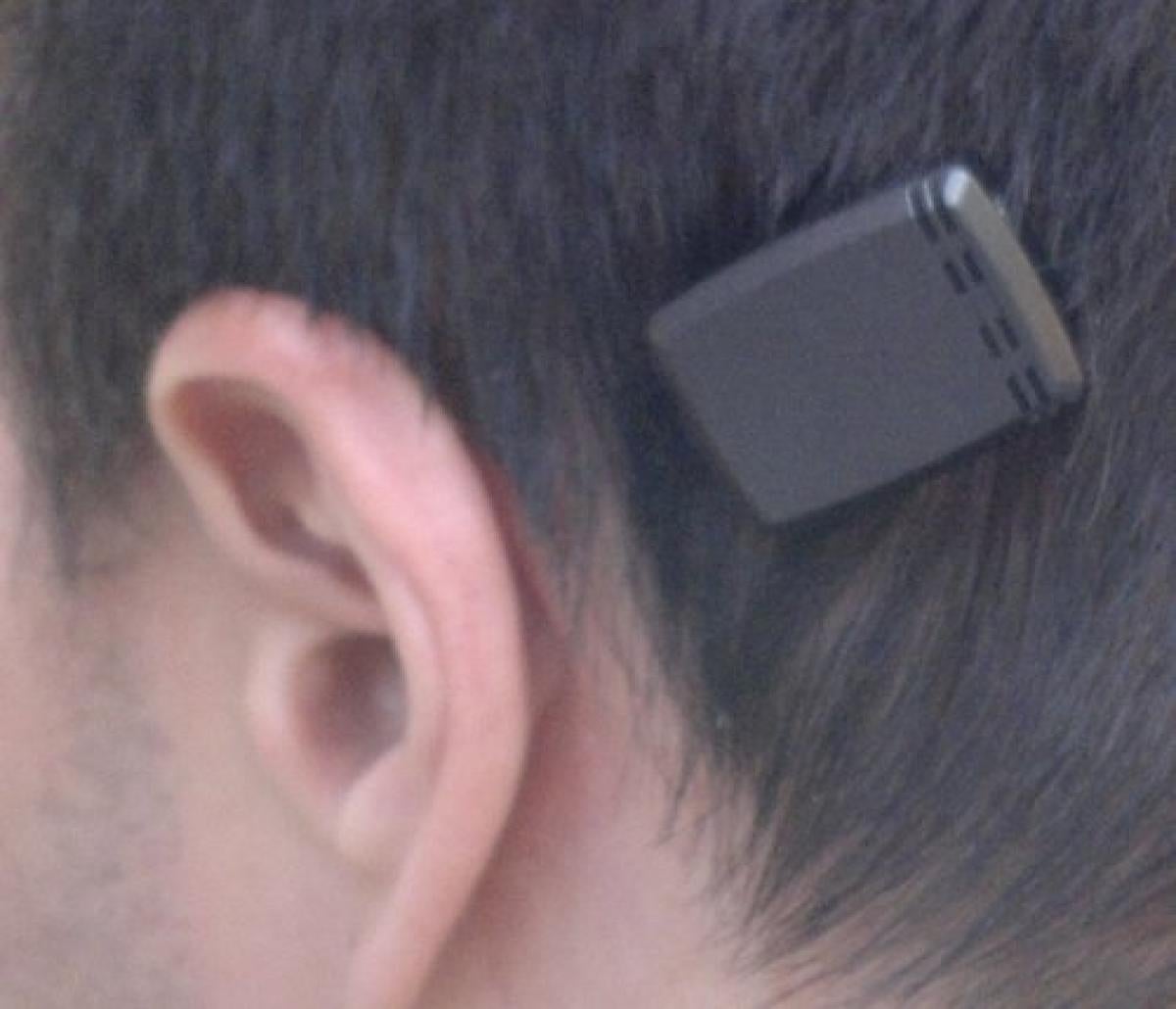Have you ever looked closely at an older person’s ears? They might have special devices called hearing aids. These are important to help them hear. Hearing aids aren’t just for older people though. Lots of people need hearing aids like little kids, your peers, and parents. Hearing aids make the sound loud enough for people with hearing loss to hear things around them.

Hearing aids are little computers on your ear. Because the ear has so many different parts, just making the sound louder sometimes is not enough to fix hearing loss. Hearing aids have a lot of extra features that are really important to help people hear well. Hearing aids can do all sorts of things depending on what you are doing. Some hearing aids even know when you are in a car with the windows down or in a noisy restaurant. How do they do this?
A lot of hearing aids have two microphones in them, so they can pick up sound coming from all directions. If the person wearing hearing aids is in a noisy restaurant, he or she does not want to hear the sounds coming from all around. The person mainly wants to hear the other people at the table. The hearing aid can change the sound it sends to the ear so that the person hears less sound from other tables and more from the table where they are sitting. Hearing aids are also programmed specifically for each person’s hearing loss. That means that grandma and grandpa cannot share their hearing aids. An audiologist has to program the hearing aids for each person.
Important Implants

When people have a really severe hearing loss, they may qualify for a cochlear implant. A person can get a cochlear implant when the hearing nerve is damaged so much that a hearing aid cannot help them. When a hearing aid cannot help, specialized ear surgeons can put an implant in the cochlea that acts just like the hearing nerve. This is a quick surgery and has great success.
Once a person has a cochlear implant, they can put on a cochlear implant speech processor when they want to hear. After surgery, the person with a cochlear implant works with an audiologist to adjust the cochlear implants for the best hearing.
Hearing Through Your Bones
Permanent conductive hearing loss can occur when the middle ear cannot be fixed. The hearing nerve is working, but the sound cannot get through. When someone has a permanent conductive hearing loss, they can wear something called a bone-anchored hearing device. The bone-anchored hearing device vibrates the skull. This moves the fluid in the cochlea the same way that is would normally move when it receives sound. The vibration allows the person to hear normally by avoiding the middle ear that is damaged.
Additional images via Wikimedia Commons. Bone-anchored hearing device image by Chaosdruid.
Read more about: How Do We Hear?
Bibliographic details:
- Article: Handling Hearing Loss
- Author(s): Dr. Biology
- Publisher: Arizona State University School of Life Sciences Ask A Biologist
- Site name: ASU - Ask A Biologist
- Date published: 2 Feb, 2016
- Date accessed:
- Link: https://askabiologist.asu.edu/handling-hearing-loss
APA Style
Dr. Biology. (Tue, 02/02/2016 - 14:48). Handling Hearing Loss. ASU - Ask A Biologist. Retrieved from https://askabiologist.asu.edu/handling-hearing-loss
Chicago Manual of Style
Dr. Biology. "Handling Hearing Loss". ASU - Ask A Biologist. 02 Feb 2016. https://askabiologist.asu.edu/handling-hearing-loss
Dr. Biology. "Handling Hearing Loss". ASU - Ask A Biologist. 02 Feb 2016. ASU - Ask A Biologist, Web. https://askabiologist.asu.edu/handling-hearing-loss
MLA 2017 Style

Even with permanent hearing loss, there are special technologies that can help restore hearing, such as this bone-anchored hearing aid.
Be Part of
Ask A Biologist
By volunteering, or simply sending us feedback on the site. Scientists, teachers, writers, illustrators, and translators are all important to the program. If you are interested in helping with the website we have a Volunteers page to get the process started.

